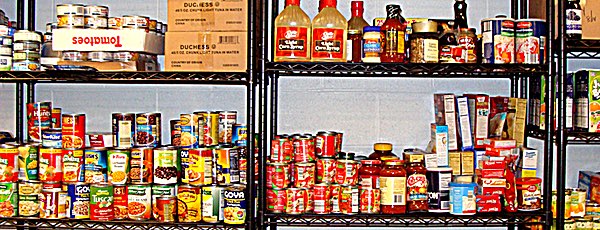- By New York State Governor's Office
- Around Town
 Print
Print 
Governor Andrew M. Cuomo announced Tuesday that food pantries on or partnered with SUNY's 64 colleges saw more than 316,000 visits in 2019. In 2017, the Governor's No Student Goes Hungry Initiative mandated that all SUNY state-operated and community colleges establish a food pantry on or in affiliation with their campus to combat student food insecurity, a pervasive problem on college campuses across the United States.
"New York will not stand idle as student hunger threatens to rob our young people of a healthy and prosperous future," Cuomo said. "Providing access to consistent, nutritious meals removes a major barrier faced by so many highly-motivated students pursuing higher education. This initiative helps ensure that upward social mobility is a realistic, traversable path for every person who pursues a college degree in New York."
In the process of collecting data to measure food pantry usage, SUNY System Administration and campus staff recognized that there is often a stigma associated with using food pantries. For that reason, students are not typically expected or required to sign in or provide information to receive food assistance. However, there are some campuses that document very basic information to ensure that there is a sufficient amount of food available to consistently meet demand. Pantry visit estimates are based on headcounts at food pantries system-wide, taken on given days throughout 2019. Through those headcounts, SUNY System Administration's Food Insecurity Task Force found that:
Individual food pantries on or partnered with state-operated campuses had a range of 25-50 visits per day. Individual food pantries on or partnered with community colleges had a range of 25-60 visits per day.
By using those ranges and accounting for slower months of the academic year, days in which food pantries were closed, and other factors, SUNY System Administration's Food Insecurity Task Force estimates that:
Individual food pantries on or partnered with state-operated campuses averaged more than 4,700 visits for the year.
In total, food pantries on or partnered with SUNY's state-operated colleges experienced more than 145,000 visits in 2019.
Individual food pantries on or partnered with community colleges averaged more than 5,700 visits for the year.
In total, food pantries on or partnered with SUNY's community colleges experienced roughly 171,000 visits in 2019.
Breakdown of Visits to Campus/Campus-Partnered Food Pantries by Region
- North Country: More than 31,000 visits
- Central New York: Nearly 35,000 visits
- Finger Lakes: Nearly 22,000 visits
- Western New York: More than 41,000 visits
- Southern Tier: More than 30,000 visits
- Capital Region: More than 32,000 visits
- Mid-Hudson: More than 43,500 visits
- New York City: More than 15,000 visits
- Long Island: More than 30,000 visits
- Mohawk Valley: Nearly 36,000 visits
The Food Insecurity Task Force was formed in November of 2017 in response to Cuomo's mandate that stigma-free food pantries be established on or in association with every SUNY campus. By working with the New York State Office of Temporary and Disability Assistance, Hunger Solutions New York and a series of other local partners, the Task Force met the Governor's requirement in less than one calendar year. SUNY, ODTA and Hunger Solutions also partnered to raise awareness on campuses about the availability of SNAP benefits. During the 2018-2019 academic year, their targeted campaign provided free education and outreach, pre-screening, and SNAP application assistance for students.
Last spring, as required by the Board of Trustees, the Task Force conducted a system-wide survey to better understand the scope of student hunger and students' comfort level accessing food pantries and other related resources. Between March and May of 2019, SUNY System Administration surveyed 6,618 students from state-operated schools, and 4,527 students from community colleges. After a close evaluation of the findings, the Task Force, in partnership with the Governor's office, issued the following recommendations to campuses for 2020:
- Begin working with auxiliary services to establish meal swipe donation programs
- Expand SNAP and WIC pre-screening & application assistance services on campuses
- Train designated campus coordinators on SNAP rules for college students
- Prioritize work-study slots for low income students
- Train campus health offices on spotting signs of food insecurity
- Create interactive, online maps for locating campus food assistance providers
- Assess campus communications to improve outreach
- Update enrollment/registration documents to include data that would trigger early alerts for students who may need intervention/assistance for food, housing, or mental health issues
SUNY Chancellor Kristina M. Johnson said, "Food insecurity undermines many students' chances of succeeding in the classroom, and forces some to quit school altogether. By forging partnerships with key state and local agencies, we are connecting students to healthy meals, keeping more young people enrolled, on track to graduate, and on the path to successful lives and careers."
v16i6



